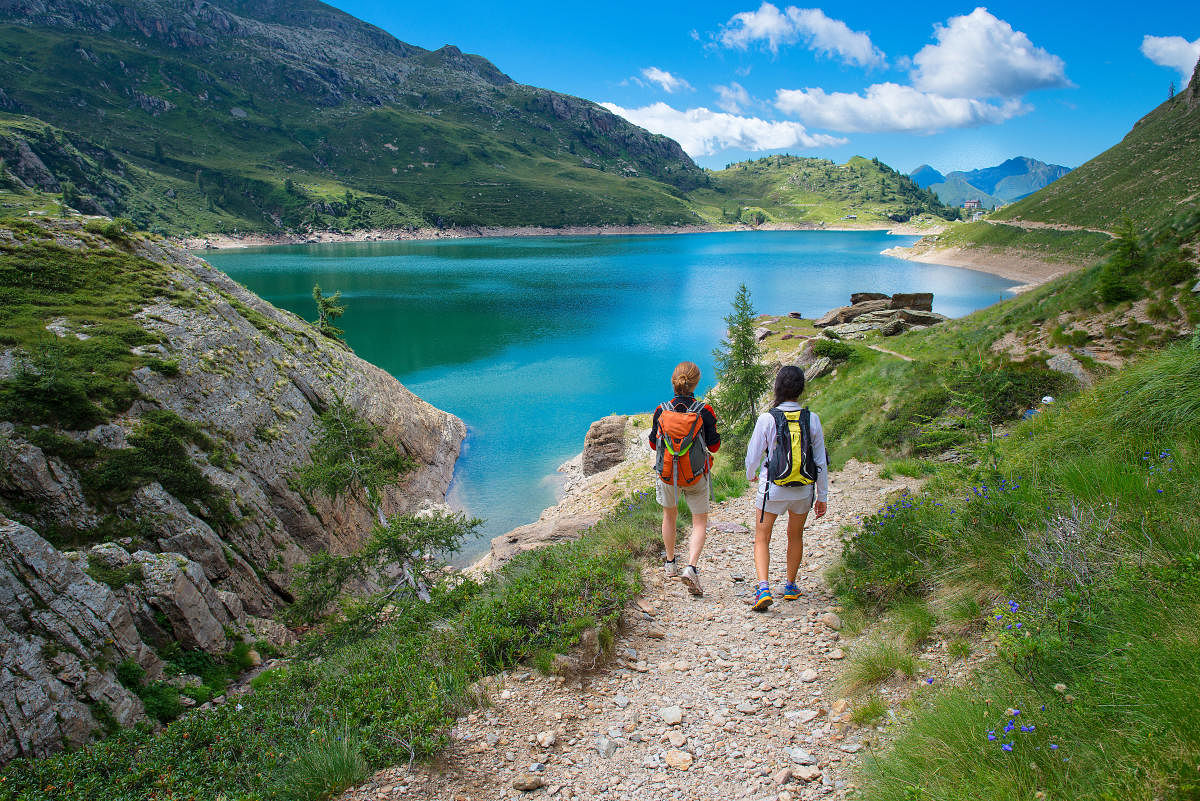
Having attended two Maha Kumbh Melas, walked with kanwariyas during the Shravani Mela, and hitch-hiked from Ladakh to Manali in a truck after staying at a Buddhist monastery for months, we do know a thing or two about budget travel. Exploring South India on a bike while setting up a channel on budget travel for an online portal gave us the perfect opportunity to do things on a shoestring. We have slept in cars during offbeat festivities like Kenduli Baul Mela and Baithurappa Festival, stayed in Tibetan monasteries from Ladakh to Bylakuppe, a Jain dharamsala in Kaushambi, a church in Kodaikanal, ashrams in Haridwar and Uttarkashi, and religiously survived on gurudwara langar in Manikaran. Based on our varied experiences, we’ve put together the essentials of budget travel.
Planning is key
Whether backpacking across Europe or on a long haul across Asia, travel research and planning is critical. Be it cheap tickets, late-night flights or last-minute deals, scour the Internet for distress sales. Bargain for better rates for longer stints; staying in a villa in Bali or Goa for a week or month is cheaper than a per day rate. Avoid peak season and weekends to save big, as many lodges lower tariff for weekdays and lean season. Often, a destination is not only more economical but also less crowded, like Kerala or Goa, in the rains. Several museums and attractions, especially abroad, are free. Avail student discounts wherever you can.
Cut guide fees by downloading maps and do-it-yourself trails. Pack less. Travelling lean means your bag can be easily lugged around or shoved onto a shared vehicle. Follow a simple rule — take only as much luggage as you can carry on your own!
Matters of transport
Hiring a cab (Rs 3,500/day) burns a big hole in your pocket, so take public transport. Overnight buses help save a night’s room rent, as we discovered on sleeper buses to Goa, Coorg and Pondicherry. In Uttarakhand and the North East, shared jeeps cost more than a bus, but save time. Despite revamped fares and new baggage restrictions, we love rail journeys! If on a budget, a day train with second sitting is more economical than sleeper class. And if the weather is okay, why pay extra for air-conditioning? The cheapest option is a chalu (running) ticket from the counter instead of a reserved ticket. A ship to the Andamans from Kolkata and Chennai may take three days but if you’re in no hurry, it is not as expensive as a flight to Port Blair. In places like Pondy, Hampi, Khajuraho and Kochi, you can easily hire bicycles for Rs 10 or 20/hour rather than scooties, which may cost Rs 300-500/day. Of course, there’s the good ol’ thumb if you want to hitch-hike. Walk around instead of taking a rickshaw and you’ll discover more on foot.
Stay smart
Bid goodbye to fancy hotels and say hello to youth hostels, lodges, BnB’s (Bed & Breakfast) and homestays. Owner-run properties have hosts who are usually well-informed to help with local tips, critical to your holiday experience. Avoid prime haunts or locations and you’ll save more. If you plan to spend most of the day out exploring, shack up in dormitories instead of AC rooms. You don’t always have to scrimp. Often the cheapest places to stay (and yet, the best in terms of location and view) are forest rest houses, PWD guesthouses and inspection bungalows, which usually require a letter from the district forest officer (DFO), electrical engineer or district commissioner (DC) from the nearest hub. When in the hills, carry a sleeping bag or tent as you can set yourself up anywhere.
In god we trust
While travelling, we have always found new meaning in religion. Our transformation from an agnostic to a die-hard believer is swift, if it can wrangle us a stay in an ashram, dharamshala, church, monastery or gurudwara. They usually have simple rules like no smoking, liquor, meat or loud behaviour and restricted entry/exit timings. But mostly you stay for free, with a discretionary donation expected of you. Attending a discourse, meditation, bhajan or satsang will earn you some brownie points. The other plus is food. All gurudwaras run a langar (free community kitchen) so a visit around lunchtime is good timing; likewise for annadana (free meal) at places like Udupi Sri Krishna Temple, Horanadu Annapoorneshwari Temple, and Padi Igguthappa Temple in Coorg.
Eat shoots & leaves
Street food is the ultimate money-saver as food on the go saves you service taxes at a fancy restaurant with seating and air-conditioning. Eat local at dhabas and eateries. Being a veggie helps as non-veg dishes are costlier. A set thali meal is good value for money and you often get refills. Eat plenty of fruits, especially bananas — fresh, cheap and filling! Don’t buy mineral water, carry a bottle instead, and fill it wherever you go (most establishments now have RO water). If your hotel tariff has breakfast included, make sure you don’t miss it.
Holiday with a difference
A great way to offset holiday expenses is ‘voluntourism’ like farming, teaching, home-building projects or charity. Organic farms like Rainforest Retreat in Coorg offer internship (minimum three to six months), while backpackers can stay in their remote self-service cottage at just Rs 7,000/week. Spiti Ecosphere offers programmes like the weeklong ‘Backpacking with a Purpose’ or the two-week ‘Greening the Deserts: Building in the Himalayas’ that help build greenhouses for village communities. Useful for longer stays in many cases, it not only takes care of your food and stay, you might also earn some stipend on the side.
No matter what your reason for travel, a budget holiday often takes you to places that are more secluded and offbeat, offering real experiences, thrilling adventures and a chance to meet interesting, like-minded people who share travel, rooms and resources.